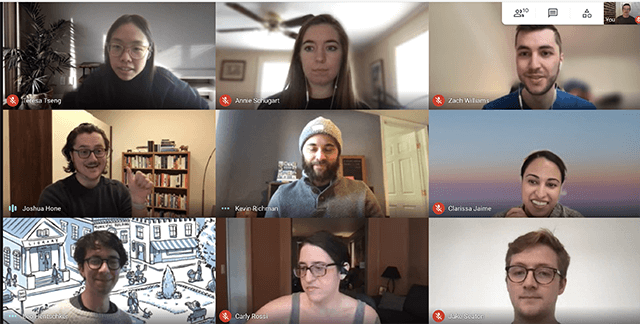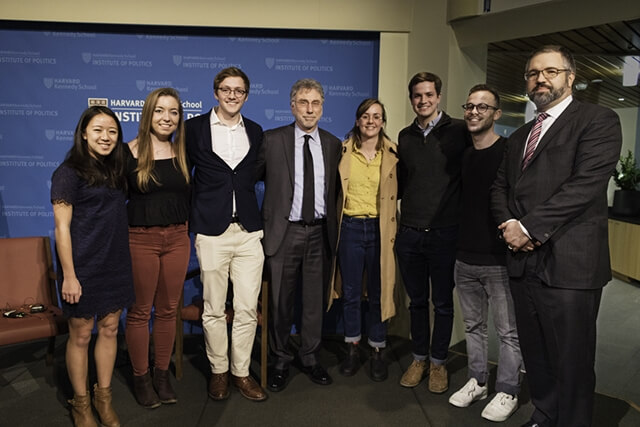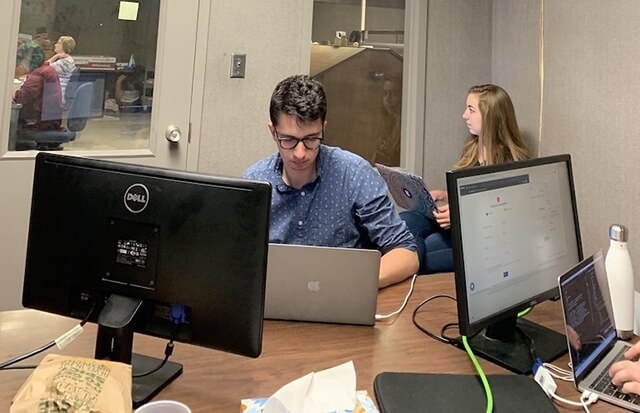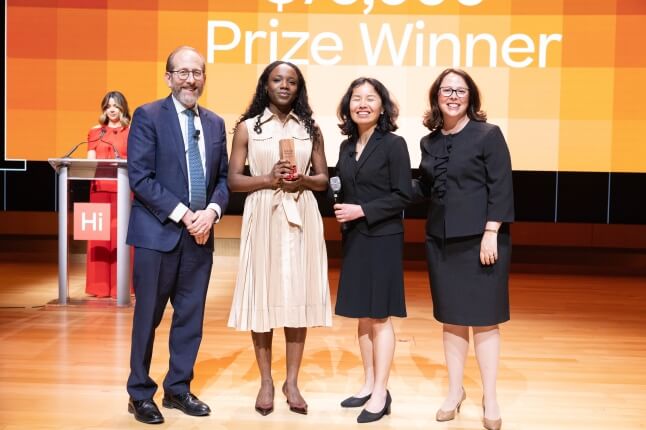News
Column is now a remote-first company with a growing team spread across four continents.
Newspapers face eroding revenues as tech companies like Google and Facebook attract advertisers who traditionally provided the bulk of many publishers’ income.
As business models shift, public notices—advertisements that are legally required to be published in a newspaper of record—have become a more significant income source for many news organizations.
But the process for placing a public notice, like an announcement of a city council meeting, is still stuck in the 20th century. Lawyers and government officials often engage in weeks of back-and-forth with a newspaper office as dozens of emails, phone calls, and faxes are exchanged.
Public notice is ripe for an update, and Column, a venture-backed public benefit corporation launched by three Harvard alumni, is using technology to streamline and enhance the process for everyone involved.
“Public notice used to be an afterthought among the classified advertisements, but now it is looking like a bigger and bigger piece of the pie for many media businesses,” said founder and CEO Jake Seaton, A.B. ’19. “It is more and more important that they provide an innovative solution for this category. We started Column to build that solution.”
Seaton knows firsthand the struggles faced by the newspaper industry. His family has owned newspapers throughout the Midwest for five generations. When he arrived at Harvard, he decided to study computer science at the John A. Paulson School of Engineering and Applied Sciences so he could learn how to use technology to have an impact on the family business.
He also came to campus with an interest in entrepreneurship, and decided to leave Harvard in 2015 to join Quorum, a legislative data analytics platform founded by two Harvard classmates. When Seaton returned to campus in 2017 to finish his undergraduate degree, he was determined to use what he had learned to tackle another problem, this time in the media industry.
“By the time I returned to Harvard, I was already fascinated by the public policy challenge of maintaining an effective system for public notice,” he said. “Looking through Quorum's database, there were hundreds of bills introduced each year across state legislatures on this topic, but none of them seemed to address the underlying principle of notifying the public, and they almost always failed.”
Early members of the Column team at the Shorenstein Center's 2019 Goldsmith Awards with Washington Post Executive Editor Marty Baron and Shorenstein Director Nicco Mele. From left: Madeleine Nakada '20, Annie Schugart '18, Jake Seaton '19, Baron, Mairi Robertson MPP '19, Jordan Deloach, Sam Kessler '19, Mele.
Lightbulbs went off for Seaton in “Distributed Systems” (CS 262), a systems engineering course taught by Jim Waldo, Gordon McKay Professor of the Practice of Computer Science. Waldo shared an anecdote of how, during his time at Sun Microsystems, he’d publish a hash code of his team’s engineering journals as a public notice to legally prove the origin of Sun’s intellectual property.
Seaton approached Waldo, who agreed to advise his independent research project. He began studying how advances in distributed system design, like cryptography and consensus algorithms, could impact the public policy challenge of modernizing public notice.
As he dove deeper into the problem, Seaton gathered feedback from mentors at the Shorenstein Center on Media, Politics, and Public Policy and drew on entrepreneurial lessons from “Startup R&D” (ES 95r), taught by Paul Bottino, Director of Innovation Education at SEAS. Column’s founding team grew to include Leo Hentschker, A.B. ’19, a math concentrator and Quorum colleague, and Annie Schugart, A.B. ’19, a computer science concentrator Seaton had met at SEAS. Together, they started Column in 2019.
For publishers, the collaborative, online platform automates time-consuming workflows like proofing and invoicing, and enables standardization of the format in which notices are received. For governments and law firms, Column provides an easy-to-use, self-service submission platform and a system of record for tracking in-process and published notices.
Hentschker, Schugart, and Seaton converted The Manhattan Mercury's break room into the Column headquarters during the summer of 2019
“One of the biggest challenges early on was getting started in an industry that has been traditionally under served by technology, and modernizing a process that has been the same for centuries,” Schugart said. “It was tricky to find early adopters among publishers, governments, and local law firms, but once we got our product in the hands of real people, the value it delivered for them became clear.”
Working closely with early users was critical to building empathy and trust, Schugart said. Column’s user base has been growing rapidly—in late 2019, the team was excited if the platform received a single notice on a given day, but now Column is routinely processing thousands each month.
As Column’s user base has grown, Hentschker is inspired by the impact Column is having on the information ecosystems of local communities.
“Public notices are by definition the set of events that are so important they must be proactively broadcast to everyone in your town or county,” Hentschker said. “By introducing technology around this process, we are able to meaningfully improve the way that information can be accessed and distributed across the country.”
For Hentschker, the biggest hurdle now is managing the technical challenges of rapid scaling. To meet growing demand, Column is hiring aggressively while doubling down on their efforts to provide value for current customers as they seek to attract new partners.
For the three founders, working together to solve interesting problems has been the best part of the ride so far. Looking down the road, they are excited about the chance to make a meaningful impact on both media businesses and the communities they serve.
“We have a hard problem that, if we manage to solve it, it is really going to matter,” Seaton said. “To wake up every day and get to work on that with curious, intelligent, fun people is the best thing in the world.”
Topics: Alumni, Entrepreneurship
Cutting-edge science delivered direct to your inbox.
Join the Harvard SEAS mailing list.
Press Contact
Adam Zewe | 617-496-5878 | azewe@seas.harvard.edu





